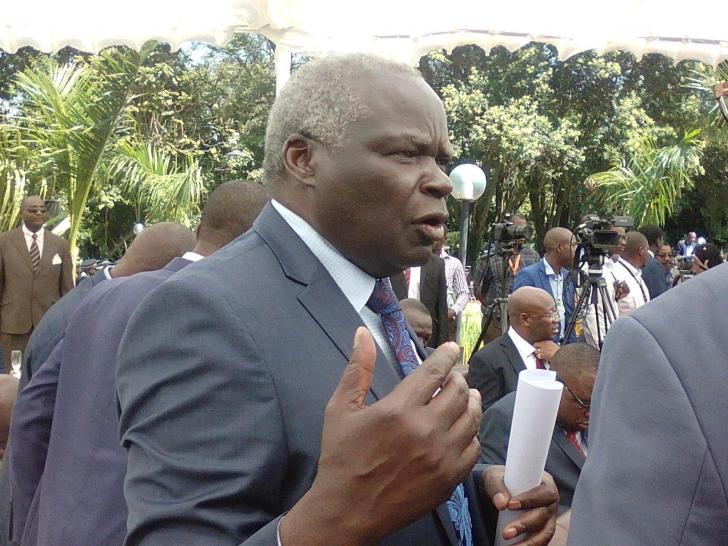News / National
Govt unveils low-cost fuel retail outlets for rural areas
12 hrs ago | Views

In a major step towards improving fuel accessibility in underserved communities, the Zimbabwean government has announced plans to roll out containerised, portable, and low-cost fuel retail outlets in rural and remote areas.
The new initiative, gazetted on Friday by Energy and Power Development Minister July Moyo under the Petroleum Act, is part of the Second Republic's broader development strategy of "leaving no one and no place behind."
According to the notice, the newly adopted regulation — Zimbabwe Standard No. 1119:2024 — provides guidelines for the design, construction, and approval of containerised fuel stations in areas that are currently fuel deficient.
"It is hereby notified that the Minister of Energy and Power Development, after consultation with the Zimbabwe Energy Regulatory Authority, has... adopted the Zimbabwe Standard for Requirements and Guidance for Establishing Containerised/Portable Fuel Retail Stations in Rural and Remote Areas... with immediate effect," reads the Gazette.
The framework is expected to bolster the implementation of the Fuel Distribution Nodal System under the National Development Strategy 1 (NDS1), which aims to enhance equitable access to energy services across the country.
Minister Moyo said the adoption of the standard empowers the Zimbabwe Energy Regulatory Authority (ZERA) to begin processing applications from businesses wishing to operate portable fuel stations, subject to approval by relevant local authorities.
"The significance of adopting the Standard is that ZERA can now consider applications from companies wishing to operate the business of fuel retail from containerised fuel filling stations at places and locations permitted by the relevant local government authorities," he said.
The move is anticipated to be a game-changer for entrepreneurs, farmers, and communities in remote parts of Zimbabwe who have long struggled with fuel shortages and the high costs associated with travelling to distant service centres.
By making fuel more accessible, the new regulations are also expected to lower the cost of goods and services and improve the competitiveness of rural farming operations, ultimately enhancing livelihoods and economic productivity in outlying areas.
The new initiative, gazetted on Friday by Energy and Power Development Minister July Moyo under the Petroleum Act, is part of the Second Republic's broader development strategy of "leaving no one and no place behind."
According to the notice, the newly adopted regulation — Zimbabwe Standard No. 1119:2024 — provides guidelines for the design, construction, and approval of containerised fuel stations in areas that are currently fuel deficient.
"It is hereby notified that the Minister of Energy and Power Development, after consultation with the Zimbabwe Energy Regulatory Authority, has... adopted the Zimbabwe Standard for Requirements and Guidance for Establishing Containerised/Portable Fuel Retail Stations in Rural and Remote Areas... with immediate effect," reads the Gazette.
The framework is expected to bolster the implementation of the Fuel Distribution Nodal System under the National Development Strategy 1 (NDS1), which aims to enhance equitable access to energy services across the country.
Minister Moyo said the adoption of the standard empowers the Zimbabwe Energy Regulatory Authority (ZERA) to begin processing applications from businesses wishing to operate portable fuel stations, subject to approval by relevant local authorities.
"The significance of adopting the Standard is that ZERA can now consider applications from companies wishing to operate the business of fuel retail from containerised fuel filling stations at places and locations permitted by the relevant local government authorities," he said.
The move is anticipated to be a game-changer for entrepreneurs, farmers, and communities in remote parts of Zimbabwe who have long struggled with fuel shortages and the high costs associated with travelling to distant service centres.
By making fuel more accessible, the new regulations are also expected to lower the cost of goods and services and improve the competitiveness of rural farming operations, ultimately enhancing livelihoods and economic productivity in outlying areas.
Source - The Herald


































